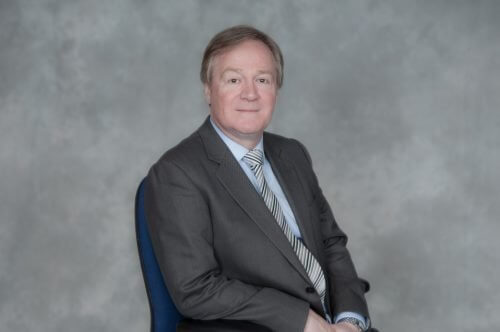
Operators are told to treat public employees with respect after an O-licence is curtailed following a tirade of abuse directed at a female DVSA inspector
Traffic Commissioner (TC) Nick Jones has reminded O-licence holders they need to understand and respect the rights of public employees, including those who carry out enforcement activities.
His message followed a Public Inquiry (PI) in Birmingham earlier this year which saw a professional driver make unjustified allegations of serious misconduct against a DVSA Traffic Examiner (TE).
“Public employees whose roles include enforcement are entitled to go about their work without harassment and unjustified abuse,” the regulator remarked. “In this case there were unjustified allegations of serious misconduct, albeit by an employee, but I find they were made with tacit approval by the operator.”
In a written decision issued after a hearing in February, the TC concluded that the ‘appalling behaviour’ of driver Paul Green had been condoned by his ‘irresponsible’ employer, A1 Scaffolding (Shropshire) Ltd, and resulted in a ‘significantly disproportionate’ complaint being made against a TE.
“It is clear that the operator condoned and encouraged the action of his driver. Moreover, it was the culture of non-compliance and attitude to authority set by the operator that contributed to Paul Green’s demeanour,” Mr Jones added.
The TC said he did not accept there was any cogent evidence of the DVSA TE perverting the course of justice or attempting to do so, as driver Paul Green had alleged to the Police.
Following a police investigation into the complaint made by Mr Green, the Crown Prosecution Service (CPS) took no action. Mr Green subsequently appealed that decision and a further review resulted in no action by the CPS.
“The appeal against the CPS decision of no action can only be interpreted as an act of cruelty, making life more difficult for the traffic examiner,” Mr Jones concluded.
The case was referred to the TC following a roadside check by DVSA officers in August 2015.
On carrying out an inspection of one of the company’s vehicles, TE Katherine Cox asked driver Mr Green to produce his digital driver card. Mr Green explained that he did not have it with him and was actually not aware of the requirement to carry it – because he was driving a vehicle fitted with an analogue tachograph. It was at this point that the TE said Mr Green became aggressive and abusive.
TE Cox subsequently spoke to the company director, Alexanda Bailey, on the phone. Mr Bailey also became aggressive and was abusive to her, suggesting DVSA was a privately owned company out to make a profit.
In evidence to the TC, Mr Bailey denied making accusations and said he had never known his driver, Paul Green, to lose his temper. However, in his decision, the TC rejected this version of events.
The regulator ruled that Alexanda Bailey had misled him by suggesting that he had obtained independent advice from a specialist transport consultant to ensure matters were in order, when he had not done so.
Turning to Mr Green, the TC said: “It is evident that Paul Green was genuinely aggrieved that he could receive a fixed penalty for failing to carry a digital driver card, where he had not thought it was necessary.
“From his demeanour and from reflecting on the evidence as a whole, it would appear that the feature that made it so difficult for Paul Green to accept that he had done wrong, was as a result of his being told of his wrongdoing by a woman.
“During the course of this hearing, I made reference to the fact that, while one must always avoid generalisations, there were pockets of industry where misogyny existed.
“Examiners abandoned the check [in this case] as a result of the difficulties caused by the driver and director. This is an unacceptable state of affairs.
“Both operators and drivers should know that full cooperation must be provided to DVSA officials when they are conducting their business.”
He added that where operators had a genuine concern with regard to enforcement activities, they should pursue them through the appropriate channels within DVSA.
The TC made an order to curtail the company’s O-licence from five to two vehicles, for three months, with effect from July 1. Mr Green’s professional driving licence was suspended for two months.

